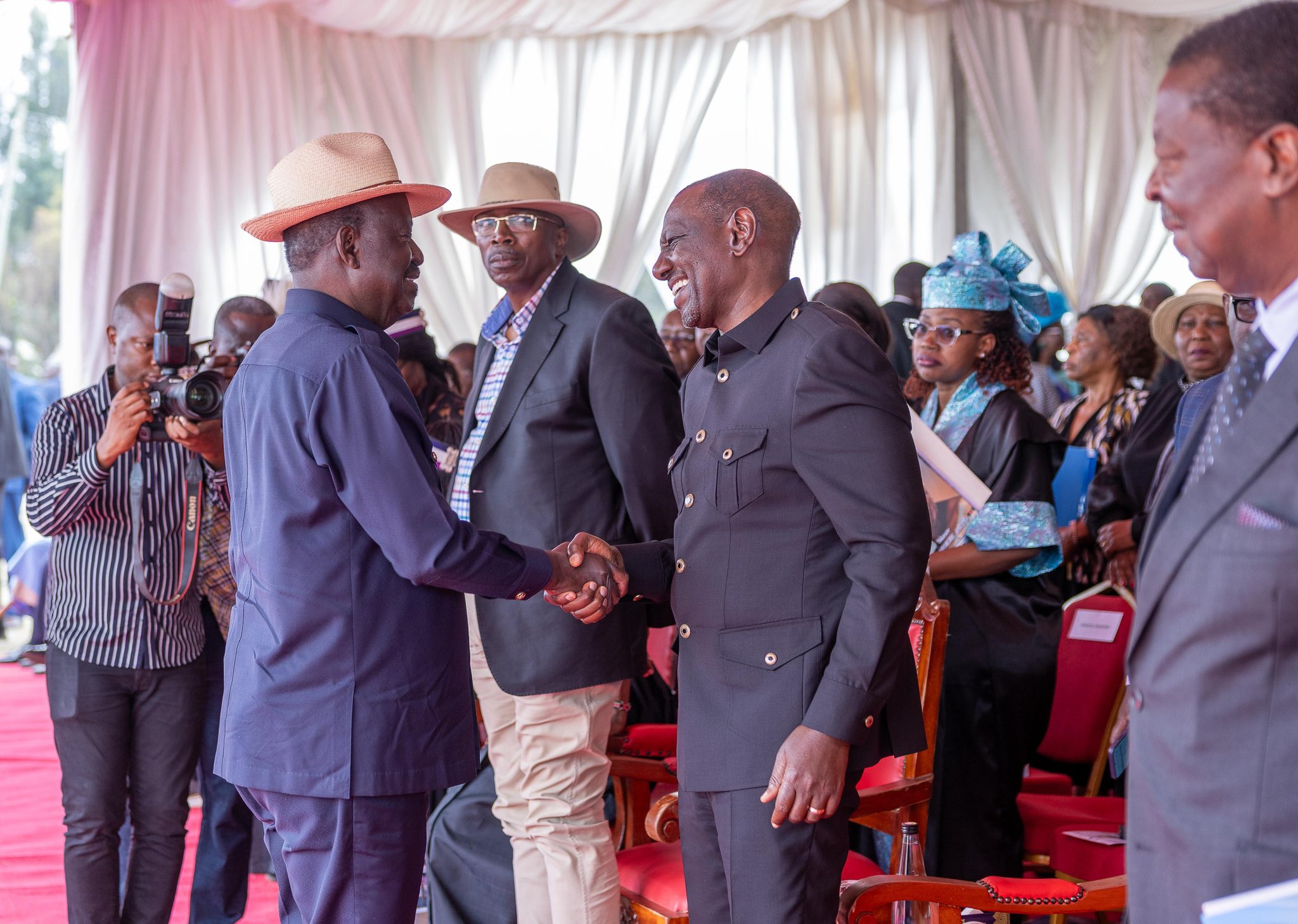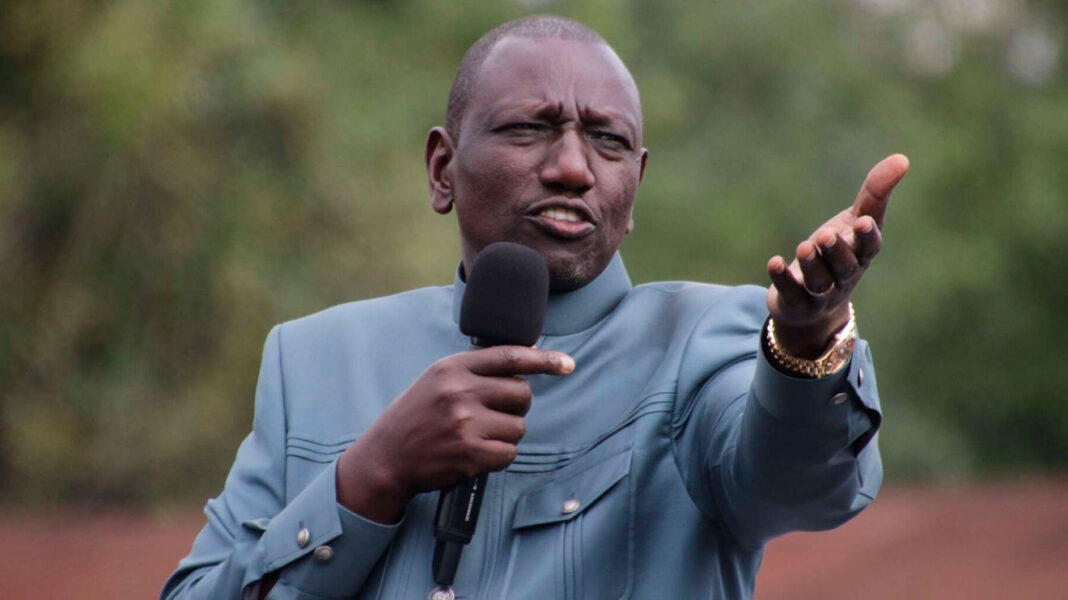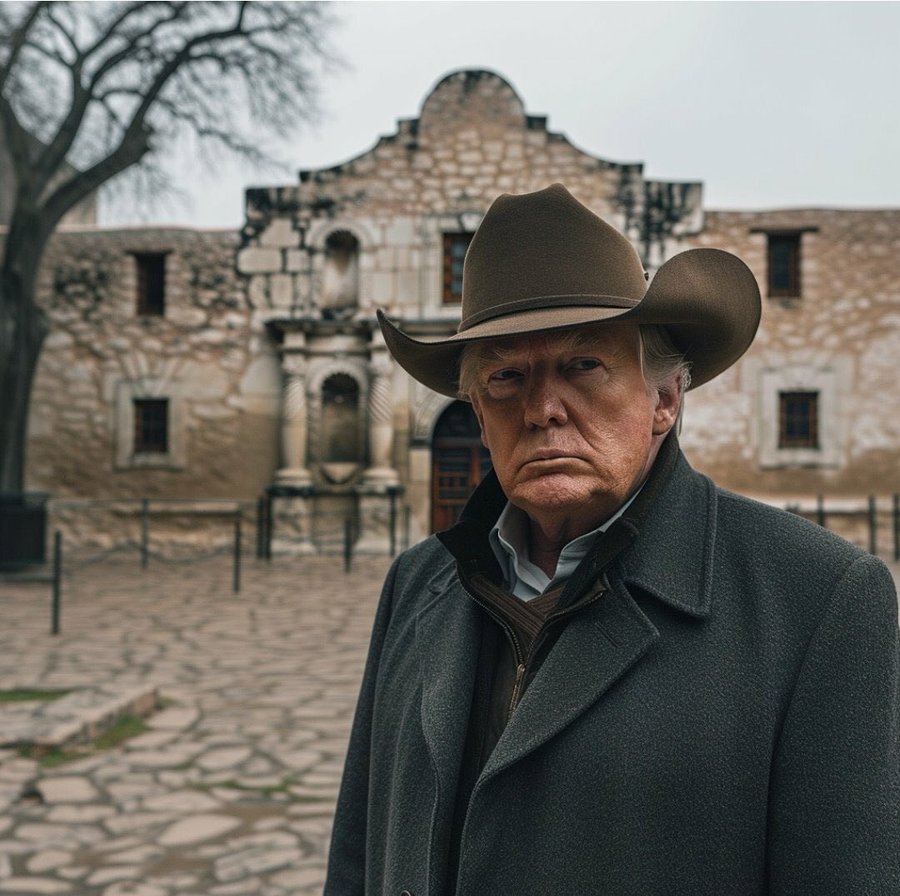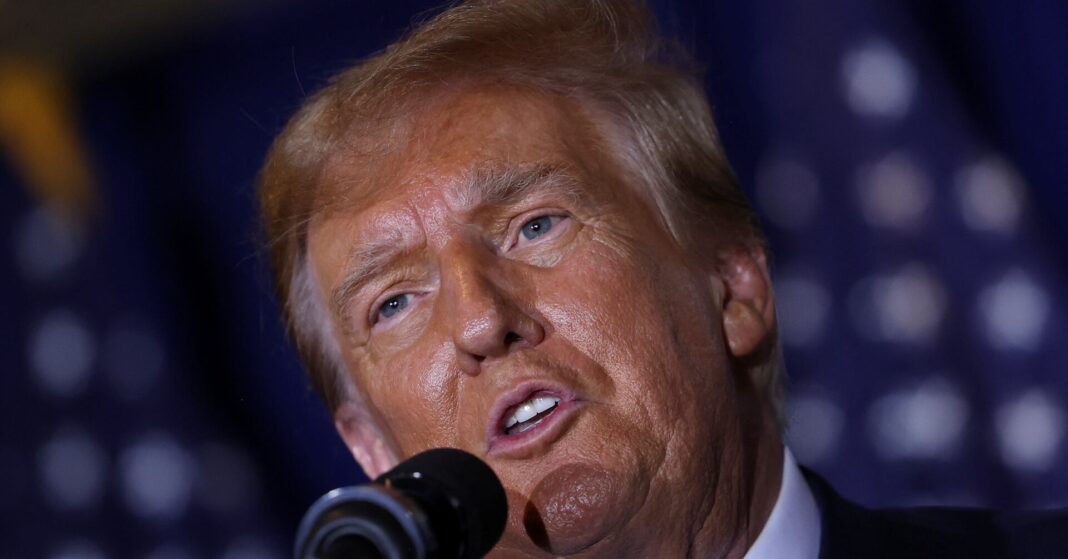Kenya’s political scene is bracing for a rare show of unity as President William Ruto confirmed that ODM and Kenya Kwanza MPs will hold a high-stakes meeting on Monday, August 18.
The talks aim to fast-track the 10-point Memorandum of Understanding signed by Ruto and Raila Odinga in March, focusing on economic reforms, youth protection, and national cohesion.
With a powerful five-member committee already in place, the meeting could either solidify a new era of bipartisan cooperation—or expose deep cracks in Kenya’s fragile political alliance.

Ruto and Raila Set Stage for Historic ODM and Kenya Kwanza Talks
Kenya’s political landscape is about to shift again. President William Ruto has confirmed that members of parliament from his United Democratic Alliance (UDA) and Raila Odinga’s Orange Democratic Movement (ODM) will hold a high-level meeting on Monday, August 18.
The meeting will address the full implementation of the 10-point Memorandum of Understanding (MoU) signed between the two parties in March this year. It follows months of political maneuvering, rising public expectations, and pressure from both camps to deliver on their unity pledges.
Speaking in Migori on Thursday, August 14, Ruto declared that this gathering is about more than political optics—it’s about forging a united front to craft policies that boost the economy and safeguard national stability.
The 10-Point Agenda Driving the ODM and Kenya Kwanza Partnership
The Monday meeting is a direct follow-up to the formation of a five-member technical committee established to implement the 10-point MoU. The agenda covers critical national issues, including economic reforms, youth protection, adherence to peaceful assembly rights, and the full adoption of the National Dialogue Committee (NADCO) report.
ODM Secretary General Edwin Sifuna had earlier called the committee the “missing link” in implementing the unity pact. According to him, the technical team is essential to break the deadlock on several agreed reforms.
The committee, unveiled in early August, brings together respected figures from both political camps and neutral analysts. Former nominated Senator Agnes Zani chairs the group, joined by Fatuma Ibrahim, Kevin Kiarie, Gabriel Oguda, and Javas Bigambo.
To ensure smooth operations, a joint secretariat co-led by Executive Secretaries from UDA and ODM will provide technical and logistical support. The body will deliver bimonthly progress reports to both Ruto and Raila, with quarterly updates to the joint Kenya Kwanza–ODM Parliamentary Group.
The ultimate test of this alliance will come on March 7, 2026, when the committee is expected to publicly release its final report—exactly one year after the MoU was signed.
Unity or Political Gamble?
While Ruto and Raila present the alliance as a blueprint for stability, critics see it as a risky political gamble.
The ODM and Kenya Kwanza partnership has raised eyebrows among loyal supporters who previously viewed the two leaders as sworn political rivals. Some fear the arrangement could dilute party ideologies and weaken accountability.
However, Ruto has insisted the unity drive is about creating “a country for every Kenyan,” not political convenience. Raila has echoed similar sentiments, stating that the MoU is a framework to ensure reforms are not just signed on paper but executed on the ground.
Political analysts warn that both leaders will face backlash if the high-level meeting on August 18 fails to produce concrete results.
The Committee’s Role in Delivering Change
The five-member committee is the engine room of the ODM and Kenya Kwanza deal. Its role goes beyond drafting proposals—it will actively monitor government compliance with the MoU and resolve disputes between the two parties.
Key focus areas include:
- Ensuring NADCO recommendations are turned into actionable policies
- Protecting the rights of youth in employment and political participation
- Upholding constitutional rights to peaceful assembly
By providing regular updates, the committee aims to maintain transparency and rebuild public trust in coalition politics.
Does This Meeting Matter for Kenya’s Future?
This ODM and Kenya Kwanza meeting is more than just another political handshake moment. It could set the tone for how Kenya handles bipartisan cooperation in the future.
If the talks succeed, Kenya may witness a rare example of rival political camps working together for long-term reforms. If they fail, it could deepen public cynicism about elite bargains and undermine faith in both Ruto and Raila’s leadership.
For now, all eyes will be on August 18. Whether the meeting delivers unity or exposes fault lines will determine not just the fate of the 10-point MoU, but the political future of Kenya’s two most dominant parties.


